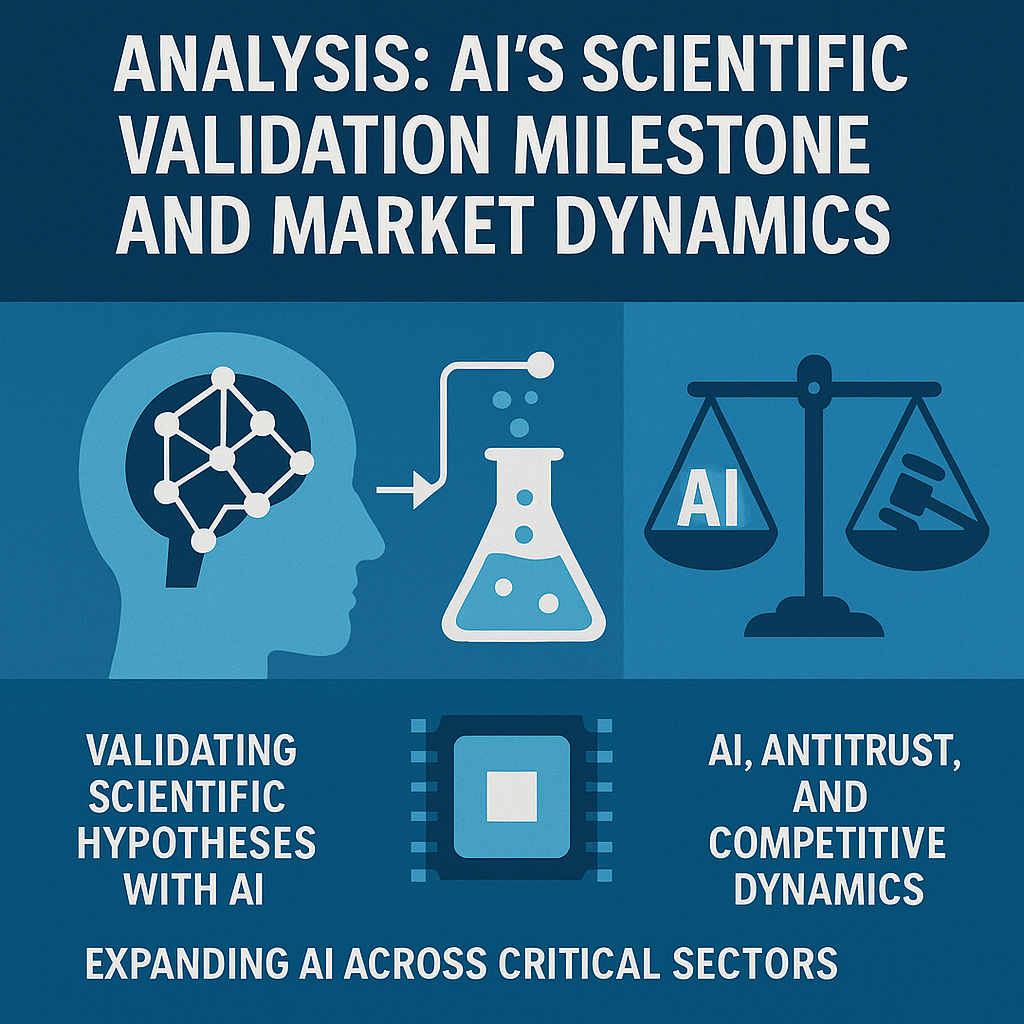AI's scientific validation is here, as demonstrated by DeepMind's cancer treatment breakthrough, marking a pivotal shift in how we approach scientific research. For researchers and innovators, this validates AI's potential to generate experimentally verified hypotheses, fundamentally changing research and development, and drastically reducing time and resources needed for scientific advancements. Stay informed on AI breakthroughs to leverage AI's potential for scientific discovery.
Google DeepMind's AI Achieves Cancer Treatment Milestone
Imagine a world where AI not only diagnoses cancer but also helps unlock new treatment pathways – that future may be closer than we think, thanks to Google DeepMind's latest breakthrough. The company's AI model, C2S-Scale, has identified a novel cancer treatment hypothesis with potentially revolutionary implications for cancer immunotherapy.
AI Predicts Transformation of 'Cold' Tumors
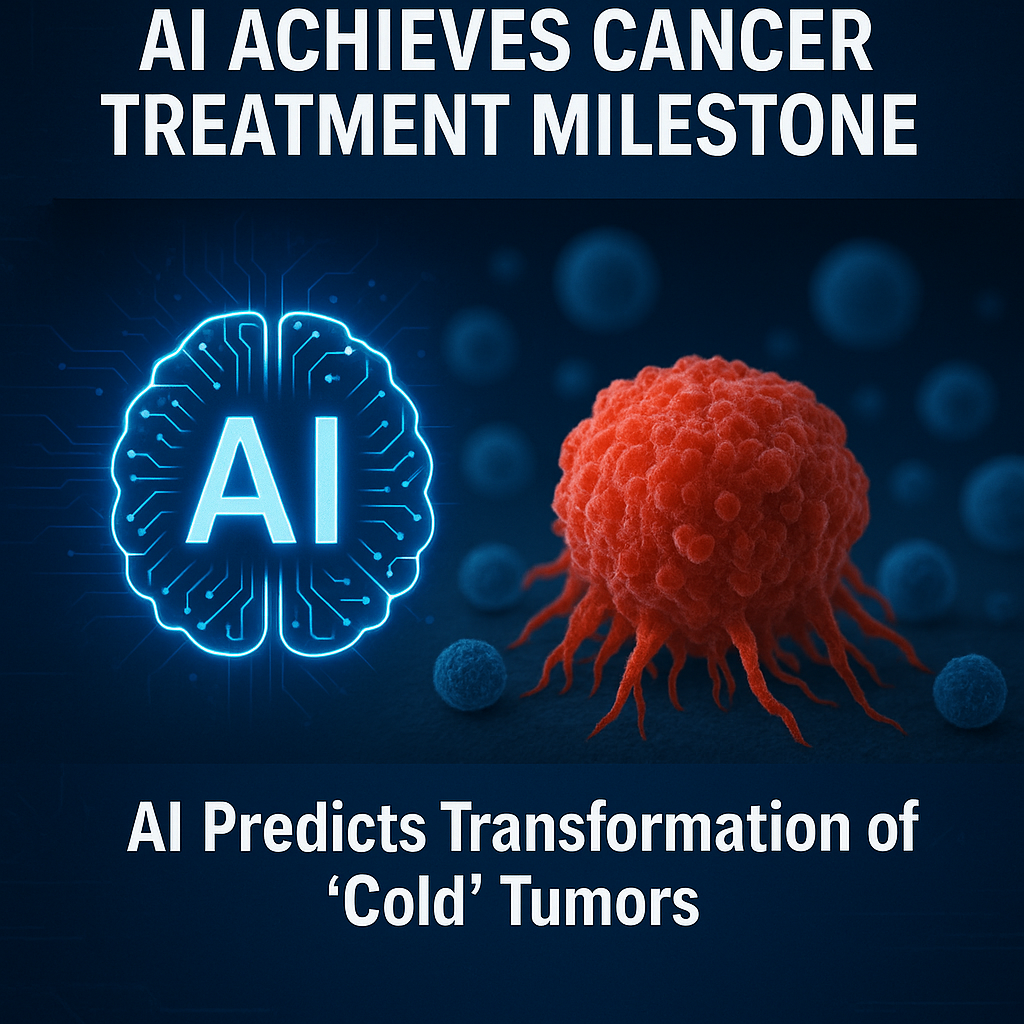
The core of this discovery lies in AI's ability to predict that the drug Silmitasertib (CX-4945) can transform what are known as 'cold' tumors into 'hot' tumors. What does this mean? 'Cold' tumors are essentially invisible to the immune system, lacking the signals that would trigger an immune response. 'Hot' tumors, on the other hand, are infiltrated with immune cells and thus more susceptible to immunotherapy. To put it simply, DeepMind's AI is suggesting a way to make previously untreatable cancers responsive to existing therapies. This opens up possibilities for patients who don't respond to current treatments.
Collaboration and Architecture
This groundbreaking research is a result of a collaboration with Yale University and is built upon Google's Gemma architecture. Gemma, known for its efficiency and accuracy, allowed the AI to sift through a massive dataset, screening over 4,000 potential drug candidates with incredible speed. The AI pinpointed that inhibiting the protein kinase CK2 could significantly increase MHC-I expression and antigen presentation—key steps in making a tumor visible to the immune system.
Lab Confirmation and Future Implications
And this wasn't just a theoretical prediction. Laboratory studies have already confirmed the AI's hypothesis. The combination of CX-4945 and a low dose of interferon increased antigen presentation by a remarkable 50%. This real-world validation underscores the power of AI in accelerating scientific discovery. According to Sundar Pichai, this discovery has the potential to reveal completely new avenues for anti-cancer therapies, ushering in a new era of AI in oncology.
This breakthrough highlights the transformative potential of AI drug discovery. By identifying novel pathways and drug candidates, AI is poised to revolutionize not just cancer treatment, but also a wide range of other medical fields. As AI continues to evolve, expect to see even more innovative solutions emerge, offering hope for previously untreatable diseases.
Chipmind Raises $2.4 Million to Automate Chip Development with AI Agents
In a move poised to reshape the semiconductor industry, Chipmind has successfully raised $2.4 million in pre-seed funding to pioneer the development of AI agents designed to automate chip development. This funding injection marks a significant step towards addressing critical bottlenecks in the global technology supply chain, potentially accelerating the advancement of AI hardware itself.
Automating the Mundane
Chip design and verification are notoriously complex and time-consuming processes. Chipmind aims to tackle this challenge head-on by deploying AI agents capable of automating the repetitive tasks that currently dominate the workflows of semiconductor engineers. Think of it as teaching AI to handle the 'grunt work' of chip design, freeing up human experts to focus on innovation and higher-level problem-solving. These AI agents learn to perform specific tasks, such as layout optimization, design rule checking, and functional verification – all crucial steps in bringing a new chip to life.
By automating these monotonous tasks, Chipmind estimates they can target approximately 40% of semiconductor engineering work that is often characterized by its repetitive and time-intensive nature. To visualize this, imagine sifting through mountains of data to identify design flaws – a task AI can accomplish with unparalleled speed and accuracy. A tool like GitHub Copilot, an AI pair programmer that helps developers write code faster and with less effort, is already transforming software development, and Chipmind hopes to bring a similar revolution to chip design. This automation has the potential to not only boost efficiency but also reduce the risk of human error, leading to more reliable and robust chip designs.
Reducing Development Cycles
The traditional chip development cycle can span up to four years, a timeline that strains resources and hinders innovation. Chipmind's AI agents are engineered to drastically shorten this cycle, enabling faster time-to-market for new chip designs. This acceleration is particularly crucial in today's fast-paced technology landscape, where demand for more powerful and efficient AI hardware is constantly growing.
Collaborating for Success
Chipmind isn't operating in a vacuum. They are actively collaborating with European chip manufacturers on proof-of-concept projects. These partnerships are essential for refining their AI agents and ensuring they are tailored to the specific needs and systems of different manufacturers. The AI agents are designed to learn from each manufacturer's unique systems and design processes, making them highly adaptable and effective. This collaborative approach ensures that Chipmind's AI solutions are not just theoretical but are practical and implementable in real-world chip manufacturing environments.
By streamlining chip development, Chipmind hopes to contribute to a more robust and agile technology supply chain. This, in turn, can accelerate the development of AI itself, creating a virtuous cycle of innovation. This funding round signals a growing recognition of AI's potential to revolutionize not just software, but also the very hardware that powers it all, helping the AI revolution march forward and perhaps be covered on AI News soon.
HEALWELL Demonstrates AI-Generated Regulatory-Grade Real-World Medical Data
The AI revolution continues to reshape industries, and the pharmaceutical sector is no exception. One remarkable example of this transformation is HEALWELL AI's DARWEN™ platform, which is making waves by generating regulatory-grade real-world data (RWD). Think of it as AI-powered medical research, potentially speeding up drug development and improving patient care.
Real-World Data and Inflammatory Bowel Disease
HEALWELL's DARWEN™ platform recently showcased its capabilities by generating RWD on vedolizumab dose escalation. This data demonstrated improved remission outcomes for patients suffering from inflammatory bowel disease. In simpler terms, the AI analyzed data to show that adjusting the dosage of vedolizumab can lead to better results for patients. This kind of insight, gleaned from real-world patient experiences, can be invaluable for doctors making treatment decisions. This is a powerful example of AI in healthcare directly impacting patient outcomes.
Collaboration with Takeda Pharmaceutical
This innovative work isn't happening in isolation. HEALWELL is collaborating with Takeda Pharmaceutical, a major player in the industry, to leverage DARWEN™'s capabilities. Such collaborations are crucial for translating AI breakthroughs into practical applications that can benefit patients on a large scale. This partnership highlights the growing recognition of AI's potential to revolutionize pharmaceutical development.
Supporting Patient Access and Product Advancement
The implications of HEALWELL's work extend beyond just treatment optimization. The AI-generated RWD can support patient access to medications, drive product advancement, and foster reimbursement growth. By providing robust evidence of a treatment's effectiveness, DARWEN™ can help ensure that patients have access to the therapies they need. This data can also be used to refine existing products and make them even more effective. AI has the potential to accelerate the whole life cycle of drug development and deployment.
Addressing Gaps in Traditional Clinical Trials
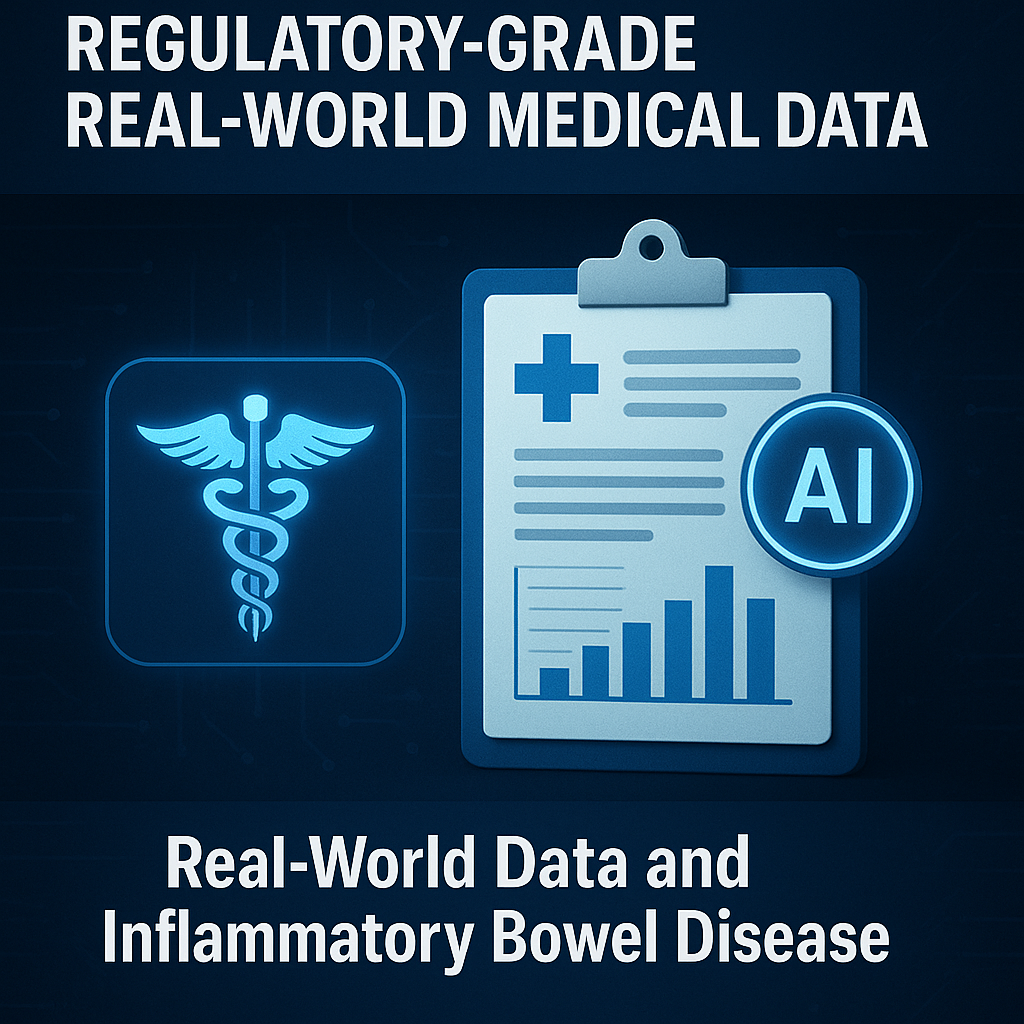
One of the key strengths of DARWEN™ is its ability to address gaps where traditional clinical trials fall short. Traditional trials are often expensive, time-consuming, and may not fully reflect the diversity of real-world patients. By generating RWD, HEALWELL's platform offers a complementary approach that can provide valuable insights into how treatments perform in everyday clinical practice. This ensures a more complete understanding of a drug's efficacy and safety.
Recognition and the AI Revolution
HEALWELL's innovative approach has not gone unnoticed. The company was recently named a finalist in Newsweek's inaugural AI Impact Awards 2025, a testament to the significant impact of its DARWEN™ platform. As AI continues to permeate various sectors, these kinds of accolades highlight the growing importance of responsible and impactful AI innovation. Staying informed about these advancements is easy with resources like AI News, which keeps you updated on the latest developments in the field. Imagine using tools like DeepMind AlphaFold, which predicts protein structures, in conjunction with RWD to develop even more effective medications.
In conclusion, HEALWELL AI's DARWEN™ platform exemplifies how AI is revolutionizing pharmaceutical development. By generating regulatory-grade real-world data, HEALWELL is not only improving patient outcomes but also paving the way for a more efficient and data-driven approach to healthcare.
Microsoft Faces Antitrust Lawsuit Over Alleged AI Price-Fixing Through OpenAI Deal
The AI revolution is not without its potential pitfalls, and the growing power of tech giants is increasingly under scrutiny. One such instance is the class-action lawsuit Microsoft is currently facing, alleging that the company illegally inflated the prices of generative AI through its partnership with OpenAI.
Allegations of Price Inflation and Resource Restriction
The core of the lawsuit revolves around the claim that Microsoft and OpenAI had a "secret exclusive cloud computing arrangement" that served to restrict access to essential computational resources. The plaintiffs argue that this arrangement violated federal antitrust laws by artificially driving up prices in the generative AI market. Central to this is the accusation that ChatGPT, OpenAI's flagship product, which is a versatile AI chatbot capable of engaging in conversations, generating text, and answering questions, was priced higher than competing AI solutions in early 2025 due to these alleged constraints.
Leveraged Agreements and Competing Products
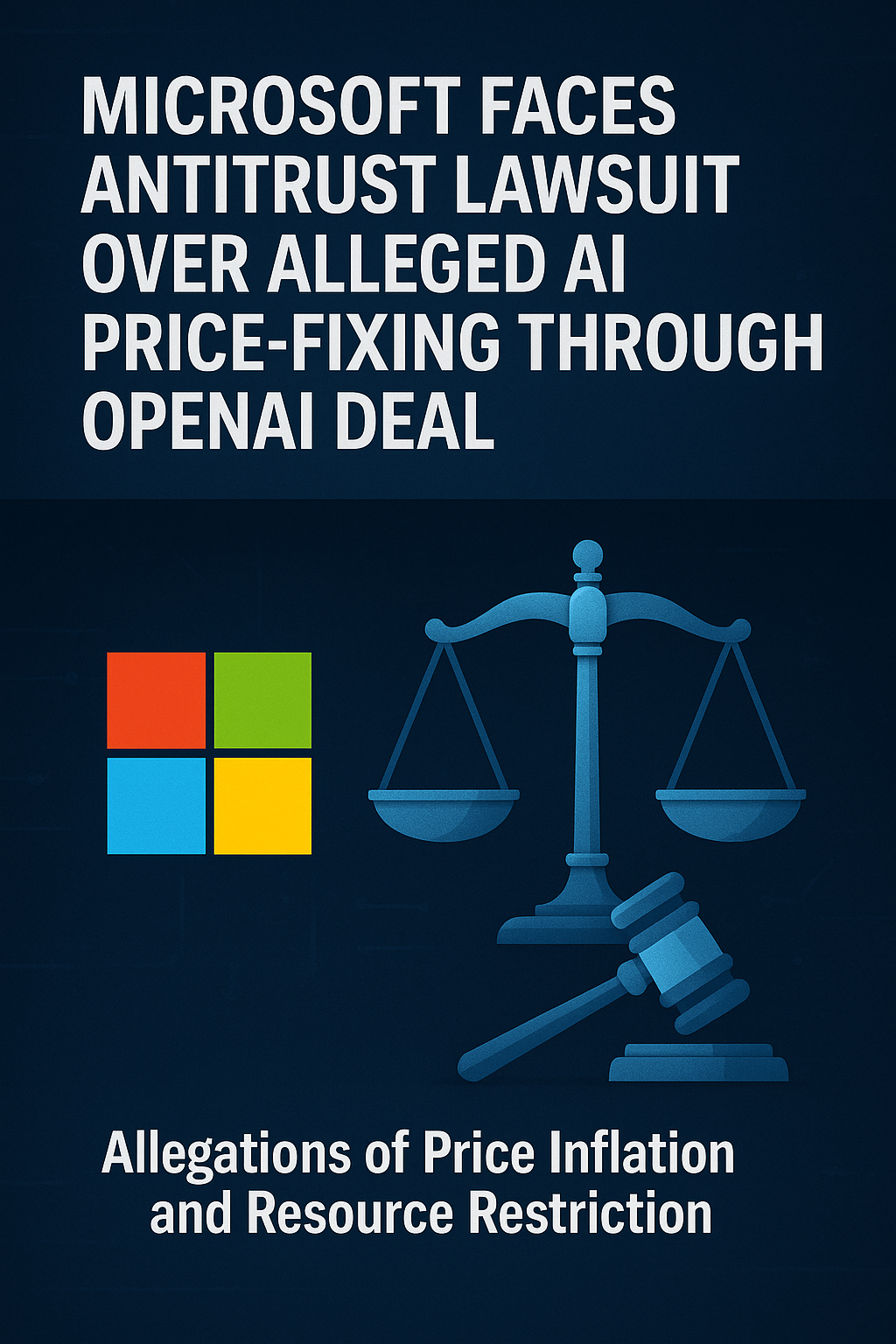
Beyond the immediate price impact, the lawsuit further claims that Microsoft leveraged its agreement with OpenAI to its own advantage while simultaneously developing competing products, such as Microsoft Copilot. This dual role, the plaintiffs contend, allowed Microsoft to benefit from OpenAI's innovations while strategically positioning itself within the market. The suit suggests that even the partial lifting of the alleged resource constraints has not eliminated the threat to fair competition, implying ongoing concerns about the dynamics between the two companies.
AI Market Competition, Regulation, and Pricing
This lawsuit highlights the increasing focus on AI market competition, particularly concerning regulation and pricing. As AI becomes more deeply integrated into various industries, the potential for market manipulation and anti-competitive behavior grows. The allegations against Microsoft and OpenAI underscore the need for vigilant oversight to ensure a level playing field for all players, from established tech giants to emerging startups. The outcome of this case could have significant implications for how AI technologies are developed, priced, and distributed in the years to come. Staying informed via resources like AI News can help stakeholders navigate these complex issues.
Ultimately, the lawsuit against Microsoft serves as a crucial reminder of the ethical and legal considerations that must accompany the rapid advancement of AI. It raises important questions about the responsibilities of tech companies and the need for robust regulatory frameworks to foster innovation while preventing monopolies and price-fixing.
Lovable CEO Projects AI Will Revolutionize Emerging Market Entrepreneurship
The CEO of Lovable, a no-code platform startup, boldly claims that AI is poised to completely transform entrepreneurship in emerging markets, and this claim carries weight considering Lovable's impressive trajectory. The company reached a staggering $100 million in annual recurring revenue (ARR) just eight months after its launch, a testament to the platform's appeal and utility.
Democratizing Development with No-Code AI
Lovable's core offering is a no-code platform that empowers users to create fully functional applications and websites using simple prompts. Think of it as having an AI assistant that translates your business ideas directly into digital reality, without the need to write a single line of code. This ease of use is particularly compelling in regions where access to traditional software development resources might be limited or prohibitively expensive.
"AI is not just a tool, it's an equalizer," the Lovable CEO stated, highlighting the potential for underserved markets to leapfrog traditional development barriers.
The platform is experiencing its most rapid growth in diverse locales such as Sri Lanka, the Philippines, Taiwan, Tanzania, and Ecuador, signaling a widespread demand for accessible development tools. These are markets where traditional tech education and infrastructure might lag behind, making the democratizing influence of no-code AI all the more significant.
Venture Capitalist Skepticism vs. Emerging Market Realities
Despite the enthusiasm, some venture capitalists remain skeptical about the long-term viability of AI-generated code replacing human technical talent. They question whether AI can truly replicate the nuanced problem-solving and creativity of experienced developers. However, the Lovable story suggests a different narrative: AI isn't necessarily about replacing talent, but about augmenting it and unlocking potential in places where that talent is scarce.
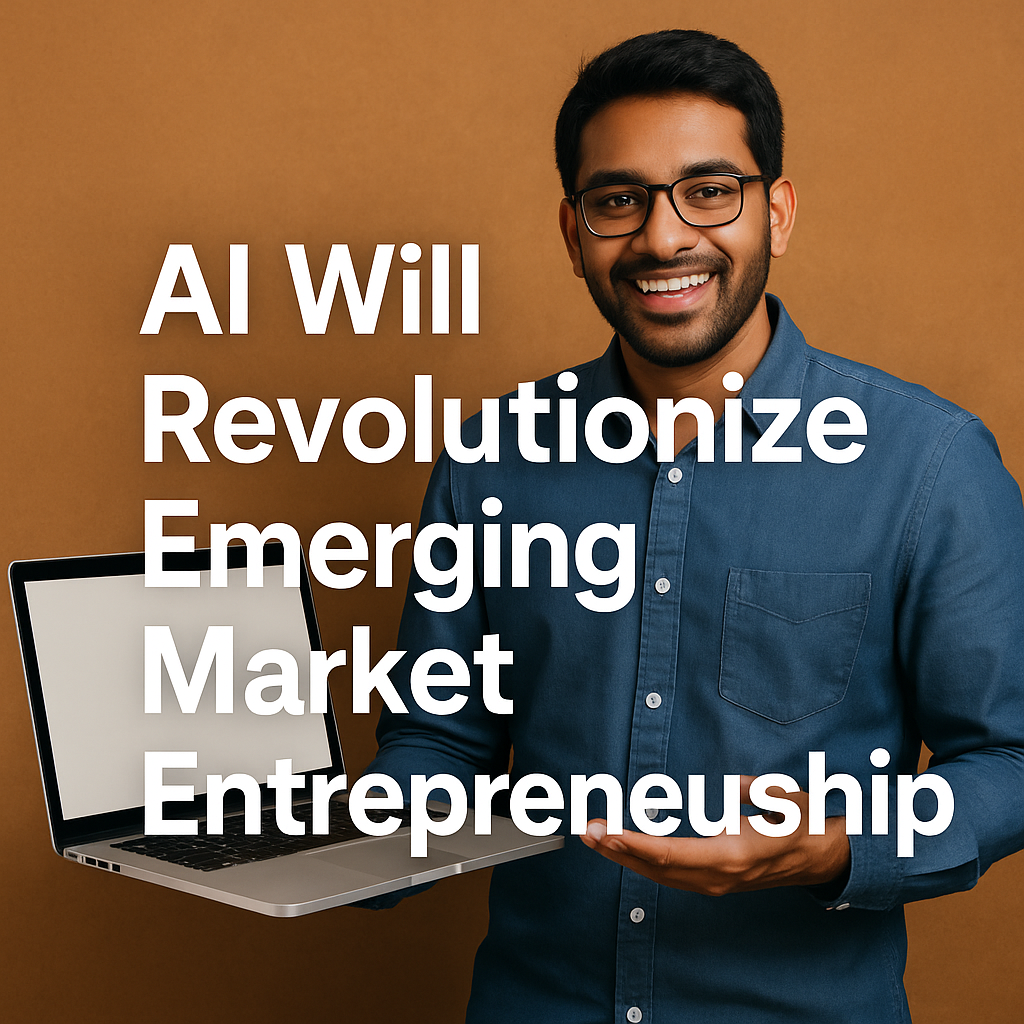
The Future: AI-Powered Entrepreneurship
Lovable's success underscores the potential for AI to democratize software development and empower entrepreneurs in underserved global markets. By abstracting away the complexities of coding, these no-code platforms allow individuals with brilliant ideas but limited technical skills to bring their visions to life. As AI continues to evolve, it's likely that we'll see even more innovative platforms emerge, further fueling the rise of AI-powered entrepreneurship in emerging economies. For more insights into trends like this, check out our AI News section.
Analysis: AI's Scientific Validation Milestone and Market Dynamics
The narrative around AI is rapidly evolving, marking a pivotal shift from viewing it as merely a predictive tool to recognizing its potential as a validated scientific discovery engine. No longer just about forecasting trends or automating tasks, AI is now demonstrating its capacity to generate experimentally verified hypotheses, fundamentally changing how we approach scientific research and development.
Validating Scientific Hypotheses with AI
Google DeepMind's recent cancer breakthrough serves as a powerful testament to this transformation. By leveraging advanced AI algorithms, DeepMind was able to generate hypotheses that, when tested experimentally, proved to be accurate and valuable. This moves AI beyond simple prediction and into the realm of active scientific discovery, offering a glimpse into a future where AI can accelerate the pace of research across various scientific disciplines. This kind of application of AI has the potential to drastically reduce the time and resources required for scientific advancements, leading to quicker solutions for pressing global challenges.
Expanding AI Across Critical Sectors
Beyond the scientific realm, AI is also making significant inroads into critical infrastructure sectors. HEALWELL's use of regulatory-grade medical data and Chipmind's advancements in chip development automation highlight the versatility and potential of AI in addressing complex challenges in healthcare and technology. These applications not only improve efficiency but also unlock new possibilities for innovation and problem-solving. Moreover, the growth of platforms like Lovable illustrates AI's democratization potential, making sophisticated AI tools more accessible to a wider audience. Lovable offers AI relationship coaching services, further extending AI into personal and interpersonal domains.
AI, Antitrust, and Competitive Dynamics
However, this rapid expansion of AI is not without its challenges. The recent antitrust lawsuit involving Microsoft exposes the potential for AI infrastructure arrangements to constrain competition. The lawsuit highlights concerns about how dominant players in the AI space may leverage their resources to create barriers to entry for smaller companies, potentially stifling innovation and limiting consumer choice. This underscores the need for careful regulatory oversight to ensure that the benefits of AI are shared broadly and that competition remains fair.
AI is straddling a line between promising breakthroughs and regulatory scrutiny.
The confluence of scientific validation, expanding applications, and increased regulatory scrutiny paints a complex picture for the future of AI. As AI continues to achieve scientific breakthroughs, its impact on market access and pricing will come under increasing scrutiny. The tension between fostering innovation and ensuring fair competition will likely shape the AI landscape in the years to come. Balancing these competing interests will be crucial to realizing the full potential of AI while mitigating its potential risks. This necessitates a proactive and adaptive approach to regulation, one that encourages innovation while safeguarding against anti-competitive practices. Staying informed via resources like AI News is crucial in navigating this evolving landscape.
🎧 Listen to the Podcast
Hear us discuss this topic in more detail on our latest podcast episode: https://open.spotify.com/episode/7DXoFBCWqm5f1c7XU6eS7B?si=kW5YpZXuSkeiDXfc3jNu6Q
Keywords: AI, Artificial Intelligence, DeepMind, Cancer Treatment, Drug Discovery, Chip Design Automation, AI Agents, HEALWELL, Real-World Data, Microsoft Antitrust Lawsuit, OpenAI, Emerging Markets Entrepreneurship, No-Code Platform, AI in Healthcare, AI Market Competition
Hashtags: #AI #ArtificialIntelligence #DeepMind #CancerResearch #TechNews
For more AI insights and tool reviews, visit our website https://best-ai-tools.org, and follow us on our social media channels!
Website: https://best-ai-tools.org
X (Twitter): https://x.com/bitautor36935
Instagram: https://www.instagram.com/bestaitoolsorg
Telegram: https://t.me/BestAIToolsCommunity
Medium: https://medium.com/@bitautor.de
Spotify: https://creators.spotify.com/pod/profile/bestaitools
Facebook: https://www.facebook.com/profile.php?id=61577063078524
YouTube: https://www.youtube.com/@BitAutor
